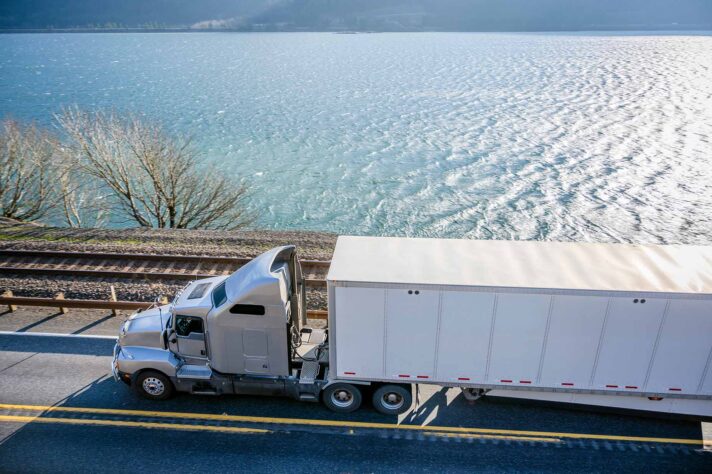The best times to move are usually the start and end of the relocation season. That’s when cross-country moving services are still available, but there are fewer crowds, and the weather is milder. However, the most common season people choose to move in is the summertime, so let’s check out how you can prepare for that feat.
Moving in the Summer – A Guide to Avoiding Sunstroke While Getting Ready to Relocate
People take advantage of the warm weather to move but heavily underestimate how the heat can affect them. While it may be a fun time to pack and head to your new home, it can also be challenging. Read our tips to make moving in the summer as smooth as possible.


A Guide to Moving in the Summer Heat Safely and Efficiently
People wonder what season is best for moving and often think of summertime. While there are plenty of benefits, from readily available relocation companies to better weather, some things have to be considered before contacting a cross-country moving company during the hot months.
Consider every scenario possible because underestimating the weather conditions and the size of your move could easily happen. This means planning and ensuring you have backup options. The safest way is to move with professional movers.
Is It Good to Move in the Summer? Tips on the Best Times for Moving
For those relocating from the east to the West Coast, the warm season could be surprisingly difficult. Western states generally have year-round warm weather, especially California, so if you think your eastern summers are ideal for relocating across the country, think it over.
Another thing to ask is, “is it more expensive to move in the summer?” Maybe unsurprisingly, but it is slightly more expensive to move in the summer than in other seasons because it’s the busiest time of the year.
However, most people move at this period primarily because they can take time off work and their children are on summer breaks from school. It’s convenient but doesn’t deny the costs. The best season to move might be early spring or early fall – if you have the chance to do so.


Before Relocating – Plan Your Move Ahead of Time
Everyone who’s relocating needs a game plan. It won’t just happen out of nowhere – you have to be at the forefront of it. The main hack for every move is to plan. It doesn’t sound revolutionary or unheard of, but it’s the key to many successful events and things.
Start a list of things to do two months, one month, a few weeks, a week, and the day before the move, and you’ll see how following a schedule can be life-changing.
Create a Relocation-Related List of Tasks and Follow Them Closely
When you settle the final details of your relocation, it’s time to create a to-do list. Everything move-related should be on it, but it’s good to prioritize tasks, too. Create multiple lists of assignments and divide them into those more and less urgent.
For example, doing a home inventory should be one of your priorities, just like contacting reputable long-distance moving services and gathering packing materials. The packing process is one of the most complex things in this process, so being ready for it by having every available resource will reduce stress.
Some other tasks you can add to the list are:
- Organizing a garage sale to get rid of unwanted items,
- Finding donation centers to donate stuff,
- Comparing the list of furniture and appliances in your new and old homes,
- Canceling utilities and services,
- Determining a relocation budget,
- Cleaning both your houses,
- Taking care of your work obligations,
- If you have children, taking care of their school tasks,
- Letting friends and family know you’re relocating.
Check the Weather Forecast, So You Know What to Expect on Relocation Day
One of the everyday things people forget to do when relocating is check the weather forecast for relocation day. Long-term forecasts can be deceiving, but you’ll be prepared as long as you keep checking daily for changes.
If you’re relocating to a small town and aren’t sure the forecast is accurate, try verifying through multiple sources. However, most weather forecasts are available statewide and are pretty spot on when predicting weather conditions. Be ready for sun and rain, so you’ll have a game plan for both when relocation hour comes.
Start Packing Early and Declutter Your Cargo and Home
Don’t start your move before following some essential relocation tips, of which the main one is to downsize for the move. It doesn’t matter if your new home is bigger than the one you’re leaving; downsizing doesn’t have to mean getting rid of essentials.
More often, downsizing implies decluttering or packaging less than you have. That’s ideal for a summer move because carrying too many boxes of unwanted items will do good for no one. You can quickly overheat and overwork yourself over stuff that doesn’t matter.
Professional relocation crews can help you with their packing services and provide some much-needed packaging tips, but even they will advise you to take it down a notch and get rid of things you don’t need. So, when you organize packing to move, create piles of useless and unwanted stuff and donate or sell them before recycling the rest.
Avoid Buying New Things Before Relocation
The trick to learning how to pack efficiently has already been mentioned – going light. But that doesn’t only mean decluttering; it’s also avoiding new and unnecessary purchases before relocating.
Try to keep the shopping urges in check by reminding yourself that the move is the biggest priority. You’ll save money and time and spare yourself the headaches of bringing more than you can handle.
When Packing Electronics, Ensure They Don’t Overheat
Tips for packaging quickly when it comes to electronics are always similar – get custom crating for large, fragile items wherever possible, and make sure they don’t overheat. The latter is especially vital for summer relocations since warm weather can heavily burden your electronics.
Also, we want to note that all essential and expensive electronics should come with you. If you let the relocation crew pack them into the truck, you might as well just break them first to avoid the heartache later on.
The woman in the video below advises how to prepare cables and chargers for relocating. This could help you learn where to start with packaging spare parts and items.
Leave Nothing to Chance – Call Long-Distance Movers for Professional Help
If a super hot summer is ahead and you have no choice but to move during it, contacting a professional long-distance moving company should be at the top of your to-do list. Besides packaging and transport, we suggest taking advantage of your movers’ auto transport services because there are many benefits of car shipping in the summertime.
For anyone worried about potential scams, you can easily verify the legitimacy of relocation companies without sacrificing money and time. Pay attention to how they communicate with you, if their prices are lower than what you typically get in a quote, and if they have a USDOT number. When you verify your movers, you’ll be good to go.
Expert packers can tell you what not to pack for moving cross country, and if there are any items they won’t move so you can prioritize. They can give you free storage services for a certain period and insure your stuff with their relocation insurance policies. You may not have these things when you first plan your move, so don’t dismiss movers right away.
Check How Many Cross-Country Movers Will Be There, and Prepare Care Packages
When you arrange everything, the customer representative in charge of your move will tell you how many team members will come to help out. You will likely be relocating with large items which are heavy and bulky, and that could significantly exhaust the team members.
To show appreciation and ensure the move goes smoothly, try to prepare care packages for each staff member. It doesn’t have to be elaborate – a bottle of water for everyone and some snacks to replenish their strength will be enough.
Packing
Our expert moving teams are trained to ensure the safety of your personal belongings.
Moving Insurance
Cross Country Moving Company is the most trusted name in the relocation industry in the country.
Moving
Our mission is to bring high quality, long distance moving services to every customer.
The Three Essential Tips for Moving in the Summer Heat – Sunscreen, Head Protection, and Hydration
Advice you might hear from doctors during summers is staying hydrated, wearing hats, and applying sunscreen. People often take these essentials for granted during hot days and end up with heatstroke.
If you’re relocating with elderly parents, taking preventative measures such as these simple things will go a long way. And if you’re relocating for the first time and constantly wonder how do you move in the summer, you might overlook these crucial factors. Again, that’s why planning will be helpful – so you don’t forget the important stuff.
It’d also be good to prepare a cooler for your water bottle stash. It’ll quench your thirst and refresh you for every next step. You can even chuck a few beers in it and keep them cold until the end to celebrate a successful move with a refreshing drink.
Wear Light Clothing and Prepare Backup Outfits Just in Case
It can be tough to move with a toddler during a heatwave because they get fussy and can’t always explain directly what’s going on with them. Whether it’s your elderly parents, friends, or children, everyone has to take care of themselves during scorching days.
Besides hydration and sun protection, wearing light clothing is essential. Ensure you and your family are wearing cotton fabrics that are easy to move around in. Carrying stuff is hard enough, but sweating profusely will complicate things.
This isn’t the moment to think about your looks, either. If you become uncomfortable in a shirt or outfit, have backups prepared just in case. That’ll mainly be true for your toddler, which will require extra care during this period.


Starting Early Is the Best Choice for Your Move to Go Smoothly
OK, you have the essentials for relocating to a new city – movers ready to go, a relocation to-do list, and water and sunscreen supplies for a small army. Now, you should figure out when to schedule your move. Our recommendation is to ask the relocating team to arrive as early as possible.
There’s another thing doctors advise in hot weather: not going outside in the noon and afternoon because the sunshine is the strongest at those hours. If you need to do anything, make sure it happens in the morning or evening. However, evening moves rarely occur and aren’t recommended.
If the relocation staff can’t come before noon, ensure you get up as early as possible to clean the house, move some stuff around and finish all unfinished tasks before their arrival. Starting bright and early is good because it doesn’t delay relocation by a minute.


Don’t Underestimate the Heat or Overestimate Your Ability to Wrap the Move Up Quickly
Hopefully, you’ve read enough long-distance moving tips to go well on the first day of your move. So many suggestions circle out there, and all that available information might be confusing, but if you need to take away a few things from it, they should be:
Reduce the amount of cargo, avoid buying new stuff before relocation, have water and refreshments ready during relocation, prepare snacks for replenishment, and use sunscreen, hats, sunglasses, and light clothes.
Any other advice you listen to and apply to your move will only make it more efficient and successful, but don’t focus on too much at once. Stay safe, and don’t forget to drink water!




